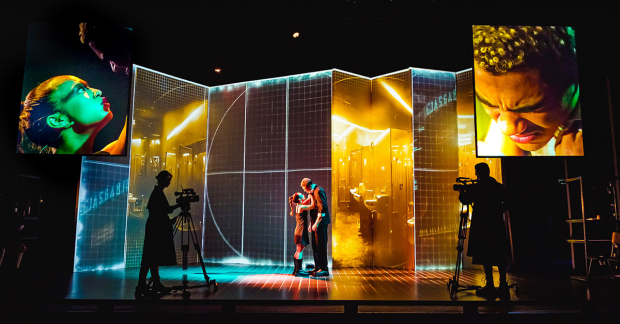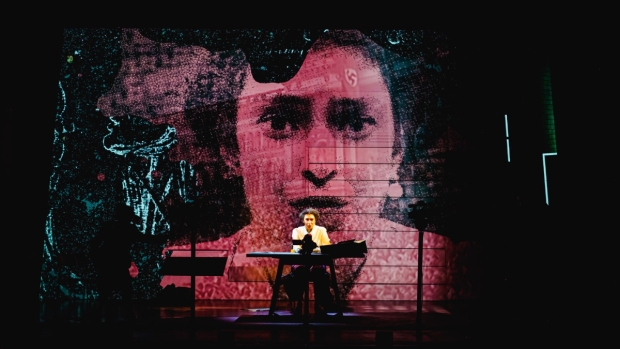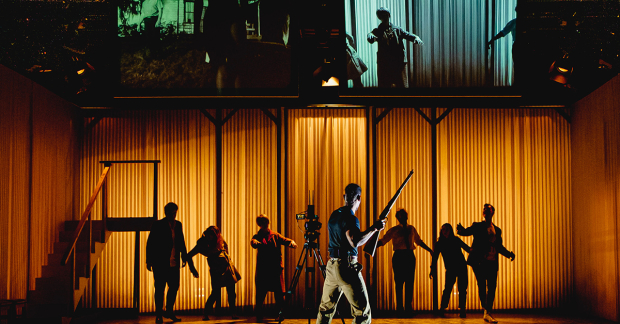”Macbeth – retold by imitating the dog” at Harrogate Theatre and on tour review

© Ed Waring
Macbeth has probably been the recipient of more off-beat variants than any other Shakespeare play. In fact, one of the witches comments that his favourite version of Macbeth is Kurosawa’s Throne of Blood; given the theme of imitating the dog’s version, maybe the neglected Joe Macbeth should have had a look-in, too.
From the above you will gather that this is no ordinary version of the Scottish Play. Described as “William Shakespeare’s Macbeth retold by imitating the dog”, in the opening stages there is too much retelling and not enough Shakespeare. The cast of five consists of Macbeth, his wife and three Witches – who play everyone else that imitating the dog leave in. The early scenes see most of the characters omitted (Duncan and the Bleeding Sergeant honourable exceptions), the setting moved to an anonymous eastern city (near enough to Epsom and Canvey Island for Duncan’s children to flee there) and Duncan in place as a Mafia boss. Also the Macbeths gain a back story: kids from the slums wanting to escape to “a life less shit”. The witches’ role as narrators brings references to Denzel Washington and Heath Ledger, a mass of obscenities and some unlikely commentary on the play.
Gradually this version begins to bite as Shakespeare comes to the fore. The staging consists of one massive screen at the back and two smaller screens connected to two cameras on stage, plus the occasional chair. The interplay of cameras and actors is less elaborate than in some earlier imitating the dog productions, but the close-ups of Benjamin Westerby (Macbeth) and Maia Tamrakar (Lady Macbeth) add impact alongside cityscapes, impressionistic views and images of their youth in Japanese cartoon style, all projected on the back screen.
Westerby’s delivery of the great speeches is urgent, rapid and troubled, perfectly in key with the production style. Tamraker’s Lady Macbeth is slower to make an impact, but her violent, addictive personality, decisive but never in control, gradually grips the attention and the close-up of her face is an abiding memory. Laura Atherton, Stefan Chanyaem and Matt Prendergast cope terrifically with multi-tasking roles as the witches – instantly characterising parts, manoeuvring and focussing cameras, offering a link between Shakespeare’s world and our own, even to the extent of laughing at self-serving lies.
The bang-bang shoot-out at the end could have gripped more (though Macbeth’s death is well handled), but key moments shock as much as they did in Shakespeare’s time: Banquo’s ghost, for instance, or the mightily ingenious revelation of Birnam Wood and Dunsinane. Equally the final scenes of Lady Macbeth are non-Shakespearean, but more than effective.
The number of members of imitating the dog always make it difficult to apportion credit. So, with apologies to those omitted, the major figures are Andrew Quick and Pete Brooks, co-artistic directors, adaptors and directors. Fellow artistic director Simon Wainwright works with Davi Callanan on the video designs and James Hamilton’s compositions and sound designs (perfectly synchronised with stage action) create an ambience often more akin to cinema.
Readers may pick up Macbeth on tour, mainly in the north, or in a series of one-night stands in, surprisingly, Switzerland!












